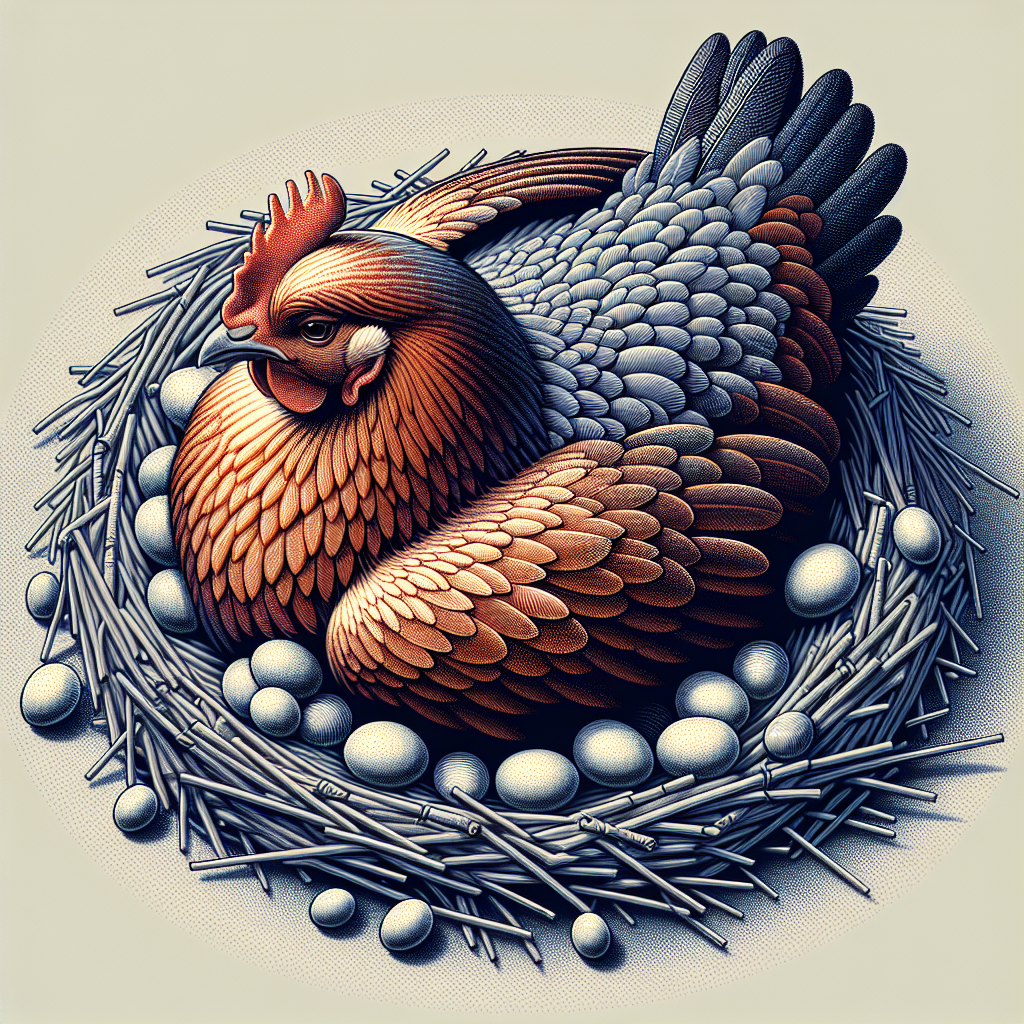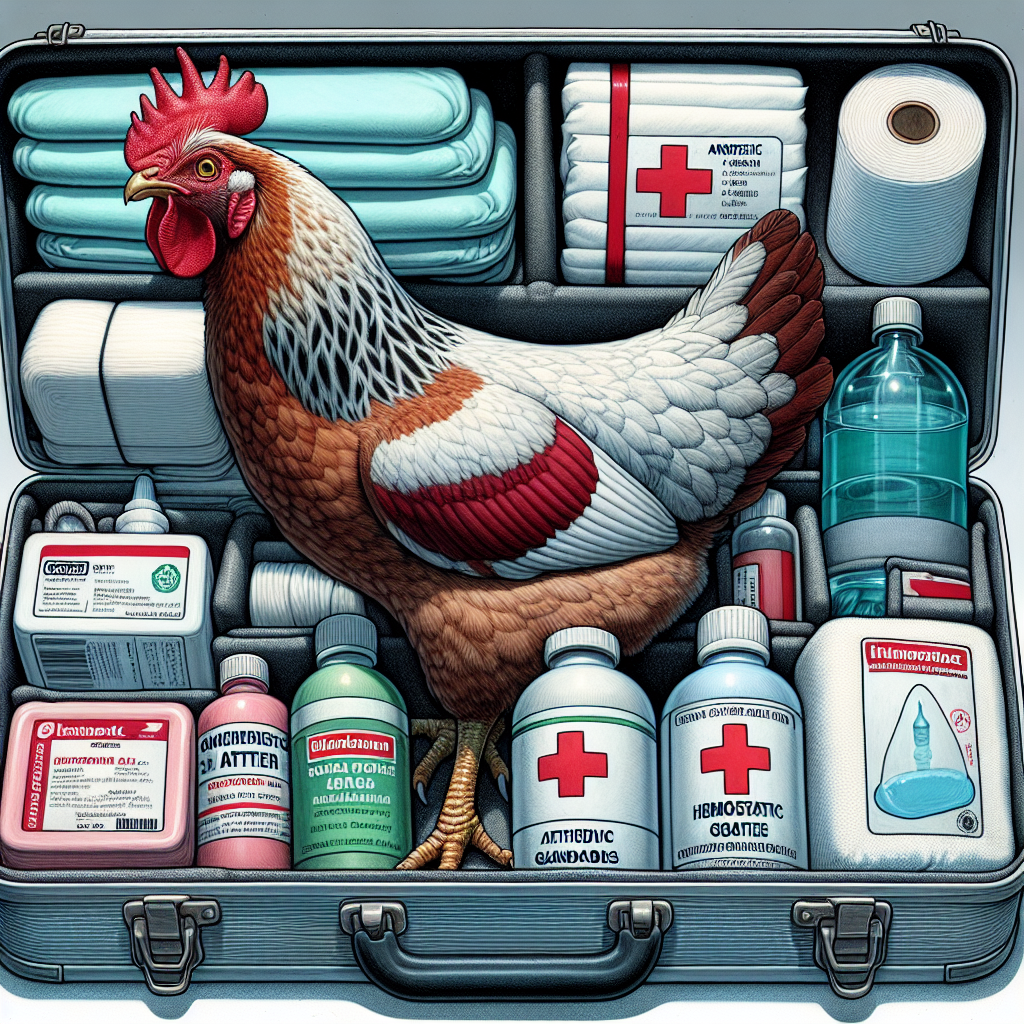If you’re a chicken owner and find yourself faced with the challenge of broody hens, you may be wondering how to effectively manage their cases and address any potential health concerns. Dealing with broodiness in hens can be a complex task, but with the right knowledge and approach, it is manageable. In this article, we will explore some practical tips and strategies to help you navigate the situation and ensure the well-being of your broody hens.
Understanding Broody Hens
Broodiness in hens refers to a natural instinct where a hen develops a strong desire to sit on and hatch a clutch of eggs. During this phase, the hen’s behavior changes, and she becomes more protective and possessive of the eggs. While broodiness is a common behavior in hens, understanding its causes and signs can help poultry owners properly manage broody hens.
Definition of Broodiness in Hens
Broodiness is a hormonal and behavioral state in which a hen exhibits maternal instincts to incubate and hatch eggs. This instinct is triggered by the release of reproductive hormones, such as prolactin and progesterone. When a hen is broody, she may spend prolonged periods sitting in the nesting area, refusing to leave the eggs unattended.
Causes of Broodiness
The causes of broodiness can vary among individual hens and breeds. Some hens are genetically predisposed to be more broody than others. Environmental factors, such as changes in season or the presence of other broody hens in the flock, can also trigger broodiness. Additionally, the presence of fertilized eggs can induce broodiness in hens.
Signs of Broody Behavior in Hens
Identifying broody behavior in hens is crucial to properly manage their care. Some common signs of broodiness include:
- Persistent nesting: A broody hen will spend long periods of time in the nesting area, even during the day.
- Clucking or growling: Broody hens can exhibit vocalizations and become protective or aggressive when approached.
- Ruffled feathers: A broody hen may fluff her feathers to cover the eggs and maintain an optimal temperature for incubation.
- Puffed-out chest: Hens in a broody state often puff out their chests to appear larger and more protective.
- Refusal to leave the nest: Broody hens will resist being removed from the nesting area, even when offering food or water.
Health Concerns
While broodiness is a natural behavior, it can pose certain health risks to the hen. Understanding and addressing these concerns is essential for maintaining the overall well-being of the broody hen.
Physical Health Risks for Broody Hens
Broody hens may experience a decline in physical health due to extended periods of inactivity, reduced food and water intake, and changes in hormone levels. Some common physical health risks associated with broodiness include:
- Weight loss: Broody hens may experience weight loss due to reduced food intake and increased energy expenditure on incubating eggs.
- Muscle weakness: Prolonged inactivity can lead to muscle weakness and loss of strength in broody hens.
- Dehydration: Broody hens may not adequately hydrate themselves, leading to dehydration and electrolyte imbalances.
- Feather loss: Continuous contact with eggs can cause feather damage and loss in broody hens.
- Increased susceptibility to external parasites: The immobility of broody hens makes them more vulnerable to infestations of external parasites, such as mites or lice.
Emotional Well-being of Broody Hens
Broody hens also experience changes in their emotional well-being during the broody period. While some hens find satisfaction in brooding behavior, others can become stressed, frustrated, or even depressed. It is important to consider their emotional needs and provide appropriate care to ensure their overall well-being.
Managing Broody Hens
Proper management of broody hens is essential to address both their physical health concerns and emotional well-being. Depending on the situation, there are natural and artificial methods to discourage broodiness. In some cases, removing broody hens from the flock may also be necessary.
Natural Methods to Discourage Broodiness
If broodiness is not desired or practical for your flock, there are a few natural methods that can help discourage broody behavior:
- Limiting nesting opportunities: Provide limited access to nesting areas and remove nest materials to discourage hens from becoming broody.
- Interrupting the brooding routine: Gently and consistently remove the broody hen from the nest, disrupting her routine and discouraging continued brooding behavior.
- Increasing daylight hours: Extended daylight exposure mimics the natural seasonal changes and can help reduce broodiness in hens.
Artificial Methods to Discourage Broodiness
In some cases, artificial methods may be necessary if natural methods are ineffective. Artificial methods to discourage broodiness include:
- Cold water treatment: Briefly submerging the broody hen’s underside in cold water can disrupt the hormonal cascade responsible for broodiness.
- Isolation: Isolate the broody hen from the flock by placing her in a separate enclosure with limited access to nesting materials.
- Adjusting environmental conditions: Altering the temperature and light exposure in the environment can help reduce broodiness in hens.
Removing Broody Hens from the Flock
If broodiness persists or becomes detrimental to the hen’s health, removing her from the flock may be necessary. This involves isolating the broody hen and providing suitable care until the broody behavior subsides. It is essential to monitor the hen closely and reintroduce her to the flock once she is no longer broody.
Providing Appropriate Nesting Conditions
Creating suitable nesting conditions is crucial for a broody hen’s comfort and well-being. Proper nesting materials, nest box choices, and cleanliness and privacy in nesting areas can greatly influence her nesting experience.
Importance of Proper Nesting Materials
Providing appropriate nesting materials is essential for the comfort and protection of broody hens and their eggs. Suitable nesting materials should be soft, absorbent, and provide insulation. Some common materials include straw, wood shavings, or grass clippings. Regularly replacing soiled or damaged materials can help maintain a clean and hygienic nesting area.
Choosing Suitable Nest Boxes
Selecting the right nest boxes is important to ensure the broody hen’s comfort and safety. Nest boxes should be of appropriate size, easily accessible, and designed to prevent egg breakage. Adequate ventilation and natural lighting should also be considered when choosing nest boxes.
Ensuring Cleanliness and Privacy in Nesting Areas
Keeping the nesting environment clean and private is crucial for promoting the well-being of broody hens. Regularly cleaning the nest boxes and removing any soiled or broken eggs helps minimize the risk of infections and infestations. Providing privacy by placing nest boxes in quiet and secluded areas can help reduce stress and disturbance for the broody hen.
Egg Management
Proper egg management is essential when dealing with broody hens. Frequent egg collection and careful monitoring can help prevent potential health risks and ensure the quality of the eggs.
Frequency of Egg Collection
Regular egg collection is necessary to prevent broody hens from accumulating a large number of eggs. Collecting eggs at least twice a day helps minimize the likelihood of eggs becoming damaged, soiled, or attracting broody hens to continue their brooding behavior.
Potential Risks of Leaving Eggs with Broody Hens
Leaving eggs with broody hens for extended periods can pose certain risks. The eggs may become contaminated, develop cracks, or hatch partially, leading to reproductive complications or infections. It is best to remove and replace the eggs regularly, ensuring any potentially affected eggs are discarded to avoid health hazards.
Maintaining Good Health
Maintaining the overall health of broody hens is vital to their well-being and successful management. Balanced nutrition, hydration, and injury prevention play critical roles in supporting their health during the brooding period.
Balanced Nutrition for Broody Hens
Providing a balanced diet is essential to meet the nutritional needs of broody hens. Including a mix of high-quality chicken feed, fresh fruits and vegetables, and access to nutritional supplements can help support their overall health during broodiness. Consult a poultry nutrition expert or veterinarian for guidance on the appropriate diet for broody hens.
Ensuring Adequate Hydration
Proper hydration is crucial for broody hens to maintain their health and prevent dehydration. Ensure a constant supply of clean and fresh water near the nesting area and encourage the broody hen to drink regularly. Monitoring water consumption can help detect any potential issues and ensure adequate hydration.
Preventing Injuries and Infections
Broody hens can be vulnerable to injuries and infections due to their decreased mobility and prolonged contact with the nesting area. Regularly inspecting the broody hen for any signs of injuries, such as cuts or bruises, and practicing good hygiene in the nesting area, can help prevent potential health issues. Treating any injuries promptly and maintaining clean nesting conditions can greatly contribute to the hen’s overall health.
Providing Mental Stimulation
Mental stimulation is essential for the well-being of broody hens. Providing appropriate environmental enrichment and social interaction can help reduce stress, prevent boredom, and promote their overall mental health.
Environmental Enrichment for Broody Hens
Offering environmental enrichment can help keep broody hens mentally stimulated. Providing pecking objects, dust bathing areas, or treats hidden in the nesting area can engage their natural behaviors and prevent them from becoming bored or restless.
Social Interaction with Other Flock Members
While broody hens may prefer solitude during the incubation period, social interaction with other flock members is important for their mental well-being. Allowing supervised visits or introducing other hens in adjacent enclosures can provide social stimulation without interfering with their nesting behavior.
Evaluating Broody Hen’s Condition
Regularly monitoring and evaluating the condition of broody hens is crucial to ensure their health and well-being. Observing the duration of broodiness, monitoring physical health indicators, and assessing their emotional state can help identify any potential concerns or necessary interventions.
Observing the Duration of Broodiness
The duration of broodiness can vary among hens, with some returning to normal behavior within a few weeks, while others may continue indefinitely. Observing the length of time the hen remains broody can help determine if further intervention is necessary to maintain her health and prevent potential complications.
Monitoring Physical Health Indicators
Regularly assessing the physical health of broody hens is essential. This includes monitoring their weight, muscle tone, appetite, and overall condition of feathers and skin. Any noticeable changes or abnormalities can indicate potential health issues that require attention.
Assessing Emotional Well-being
Broody hens also have emotional needs that should be considered. Overall behavior, responses to stimuli, and interaction with other flock members can provide insights into their emotional well-being. A broody hen displaying prolonged signs of stress or depression may require additional support or intervention to maintain her mental health.
Seeking Veterinary Advice
In some cases, seeking veterinary advice may be necessary to ensure the proper care and management of broody hens. Timely intervention by a poultry veterinarian can help address any underlying health concerns and provide professional guidance specific to your flock and the broody hen’s condition.
When to Consult a Veterinarian
It is recommended to consult a veterinarian if a broody hen’s health deteriorates or if there are concerns about her well-being. Symptoms such as significant weight loss, lethargy, abnormal breathing, or persistent refusal to eat or drink should be promptly addressed by a professional.
Professional Guidance for Broody Hens
Veterinarians specializing in poultry health can provide valuable guidance and support when dealing with broody hens. They can offer personalized advice on nutrition, fertility, preventive care, and potential treatment options, ensuring the optimal well-being of both the broody hen and the overall flock.
Conclusion
Understanding the behavior, health concerns, and appropriate management techniques for broody hens is crucial for any poultry owner. By recognizing the signs of broodiness, providing suitable nesting conditions, managing eggs, maintaining good health, and addressing their emotional needs, you can ensure the well-being and productivity of your broody hens. Regular evaluation and seeking professional advice when necessary will effectively support the care and management of broody hens, contributing to a healthy and harmonious flock.




